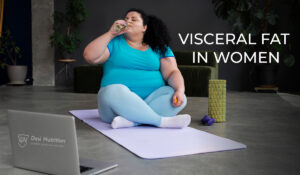Before getting to the part where you will know how to start a high-protein diet, let us first understand what a high-protein diet is. This article will revolve around high-protein diets and their, whats and hows.
What is a high-protein diet?

A high-protein diet, as the name suggests, is one that includes a higher-than-usual proportion of protein in your daily diet.
Protein is an essential macronutrient along with carbohydrates and fats. It is the building block of body tissues and cells. It is also responsible for repairing and maintaining tissues and producing enzymes and hormones by eventually supporting overall health.
Protein also aids weight loss and that is why it is advised to ensure you are taking protein in any diet that you follow because it helps to maintain muscle mass.
Features of a high-protein diet:

Increased protein intake:
The intake of protein in your daily diet will increase and you will be aiming for 1.2 to 2.0 grams of protein per kilogram of your body weight.
Protein sources:
You will include various protein sources including both animal-based protein sources and plant-based protein sources. There is a notion that you can only get protein from animal products, but those who do not eat animal products can easily access plant-based protein sources to fulfill their protein requirements while on a high-protein diet.
Balanced nutrition:
Protein is essential for your overall health but so are other macro and micronutrients. An increased amount of protein should not be a reason to cut out other essential nutrients. Make sure you are eating a meal that is balanced in terms of all other vital nutrients including fats, carbs, fiber, vitamins, and minerals.
Benefits of a high-protein diet

A high-protein diet comes with multiple benefits, especially for your muscles, weight management, and metabolic activities. Here is a list of health benefits that you will experience while shifting to a high-protein diet:
Muscle building and repairing:

Protein supports muscle growth because it provides necessary amino acids that help in muscle growth and repair. It is crucial for people who are athletes or are involved in strength training.
During weight loss or aging, you will lose fat as it may also lead to loss in muscles. Protein centric diet helps during such times as it helps to preserve muscle mass.
Weight management:

Protein helps in weight management as it helps to develop the feeling of satiety which means you will feel full for long periods of time. Due to the feeling of satiety, you would not feel hungry often which will help to decrease the overall calorie intake.
Protein-rich foods also promote thermogenesis. This means that your body burns more calories while digesting protein. The process of thermogenesis promotes weight loss because ultimately burning calories is the key to weight loss.
Improved metabolism:

Due to the higher thermic effect of protein-rich food, your body will burn more calories while digesting it which will boost your metabolism.
Consuming a high-protein diet improves your metabolic health as protein can help to stabilize sugar levels by slowing down the absorption of carbohydrates. Proteins are also a source of stable energy.
You will feel full for longer times because of protein intake which means your body won’t crave for sugars or late-night snacks.
Supports bone health:

High-protein diets are beneficial for bone health as they increase bone density because they improve the body’s ability to absorb calcium which is essential for bones.
Protein also helps to promote the formation of collagen which is essential for the formational structure of bones. Collagen is also necessary for skin health.
Improved bone health can prevent the risk of bone fractures.
Enhanced recovery:

Protein helps to speed up the recovery after exercise or injury by repairing damaged tissues and reducing muscle soreness.
Promotes hair, skin and nail health:
Proteins are building blocks of cells, especially of skin, hair, and nails. Protein helps with the production of keratin which strengthens hair and nails.
The macronutrient protein enhances skin health because it produces collagen which promotes skin elasticity and hydration.
Supports immune functions:

Proteins help to produce antibodies and other immune cells that help to fight infections.
How to start a high-protein diet?

A high-protein diet has an increased amount of protein in it but you have to make sure that it is balanced. A blanched diet will include all the essential nutrients that your body needs while you are keeping up with your high-protein diet. Here are some steps on how you can start a high-protein diet.
Calculate your protein needs:
You have to determine your protein needs so you can consume an adequate amount of protein while on high-protein diets. In order to begin with a high-protein diet, you should aim for 1.2-2.0 grams of protein per kilogram of your body weight. Make sure to take into consideration your health goals and activity levels.
Eat a balanced meal:
Ensure a complete composition of your meal which is packed with nutrients. Add green leafy vegetables, whole grains, and healthy fats which will also help you to add variety to your meals.
Ensure to include a wide range of animal and plant-based protein sources to get amino acids and other nutrients.
High-protein foods:
You will get protein from natural sources of foods including both plant and animal sources.
Animal sources of protein include lean meats like chicken, turkey, and lean beef; fish like salmon, tuna, and cod; eggs; and dairy products such as Greek yogurt, cottage cheese, milk, and cheese.
You can also get protein from a variety of plant-based sources including legumes like beans, lentils, and chickpeas; soy products like tofu, tempeh, and edamame; quinoa; nuts and seeds including almonds, chia seeds, flax seeds, and whole grains like barley, brown rice, farro, etc.
Consider protein supplements:
If you want you can try protein supplements like protein powders including whey, casein, or other plant-based powders that can help to increase the protein intake.
Protein bars and snacks could be your handy food items, especially when you are traveling. Ensure you choose options with minimal sugar content.
Distribute protein intake throughout the day:
You need to spread your protein intake throughout the day and not just in one meal. It is important that you consume protein in every meal and even in snacks whenever possible. This will help to maintain a steady supply of amino acids to your muscles and promote satiety throughout the day.
You should consume protein before and after workouts to support recovery and growth.
Stay hydrated:
In order to keep up with the high-protein diet you will need to increase your water intake as well. Water will help to flush out any excess nitrogen which is produced during protein metabolism.
Monitor nutrient intake:
It would be beneficial to track your macro and micronutrient intake by using a food diary or nutrition app on your mobile phone. This will ensure that you are consuming sufficient nutrients in your balanced meal.
Fiber is also one of the crucial components in the journey of weight loss. Make sure you are consuming fiber-rich foods as well, like vegetables, fruits, and whole grains to support digestive health. A high-protein diet can lead to less fiber intake but by ensuring to incorporate a variety in your balanced diet you can consume every nutrient including fiber.
Track portion sizes:
Portions matter a lot when it comes to losing weight. You should focus on consuming 20-30 grams of protein per meal. Include a piece of chicken breast, a cup of Greek yogurt, or a serving of tofu.
High-protein diets can lead to excessive calorie consumption as well. Make sure your portion sizes are small so you can consume less calories throughout the day. Excessive calorie consumption can lead to weight gain.
Gradual transition:
You need to start slow so your body can get used to the change in your diet. Gradually increasing your protein content will also prevent you from any digestive discomfort.
Once you are in transition make sure you are observing effects and monitor how your body responds to the changes and make adjustments accordingly. Consider your energy levels, muscle recovery, and overall well-being.
Consult a nutritionist:
Starting a high-protein diet should be done under expert supervision. A nutritionist will help you plan a high-protein diet plan according to your preferences and health goals.
You can even go for meal delivery services that will deliver cooked healthy meals at your doorstep saving you the hassle of planning your meals, shopping for groceries, ingredients, and cooking at home.
Frequently Asked Questions
Can I get enough protein on a vegetarian or vegan diet?
Ans. Yes, you can get enough protein if you are vegetarian or vegan. There are multiple options to explore even in a high-protein vegetarian diet and a vegan diet that does not include any animal-based ingredients.
Will I lose weight on a high-protein diet?
Ans. Yes, high-protein diets help you to lose weight by increasing satiety, improving metabolism, and preserving lean muscle mass.
How to know I am consuming too much protein?
Ans. Signs of excessive protein intake can include digestive issues, dehydration, increased urination, and strain on the kidneys. Balance is key, and it’s important to listen to your body and adjust as needed.



